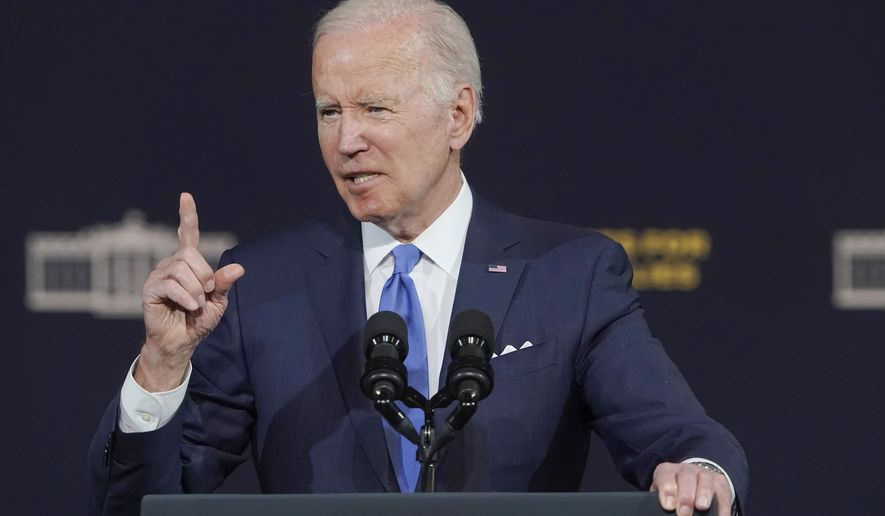President Biden used his clemency powers for the first time Tuesday, pardoning three people and commuting the sentences of 75 people who have entered drug treatment or made other attempts to rehabilitate themselves.
“America must offer meaningful opportunities for redemption and rehabilitation to empower those who have been incarcerated to become productive, law-abiding, members of society, and reduce crime and make our communities safer,” the White House said.
Mr. Biden’s decision to use his clemency powers will enthuse advocates who say harsh penalties typically fall on persons of color.
Among those receiving a pardon, which completely sets aside punishment for a crime, is Abraham W. Bolden Sr., an 86-year-old former Secret Service agent who was the first Black American to serve on a presidential detail.
He was charged with attempting to sell a copy of his Secret Service file and was convicted at his second trial after the first one resulted in a hung jury.
“Mr. Bolden was denied a new trial and ultimately served several years in federal custody,” the White House said. “He has steadfastly maintained his innocence, arguing that he was targeted for prosecution in retaliation for exposing unprofessional and racist behavior within the U.S. Secret Service.”
Betty Jo Bogans, a 51-year-old from Houston, received a pardon after Mr. Biden determined she played a limited role in a 1998 attempt to distribute crack cocaine on behalf of her boyfriend and his accomplice. She was a single mom with no prior record at the time of her conviction.
“Because of the harsh penalties in place at the time she was convicted, Ms. Bogan received a seven-year sentence,” the White House said. “In the nearly two decades since her release from custody, Ms. Bogans has held consistent employment, even while undergoing treatment for cancer, and has focused on raising her son.”
The third person pardoned was Dexter Eugene Jackson, a 52-year-old from Athens, Georgia, who was convicted in 2002 for letting marijuana dealers use his pool hall to facilitate drug transactions.
“He accepted full responsibility for his actions at the time he was charged and pled guilty. Since his release from custody, Mr. Jackson has converted his business into a cell phone repair service and hired local high school students through a program that seeks to provide young adults with work experience,” the White House said.
Mr. Jackson also builds and renovates homes in a community that lacks quality affordable housing.
Mr. Biden’s commutations, which lessen the severity of punishment after a conviction, were given to 75 drug offenders, “all of whom have made efforts to rehabilitate themselves, including through educational and vocational training or drug treatment in prison,” the White House said.
• Tom Howell Jr. can be reached at thowell@washingtontimes.com.




Please read our comment policy before commenting.